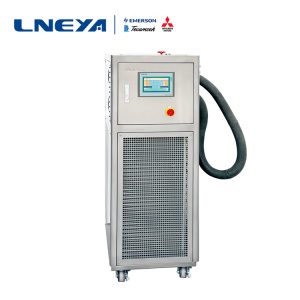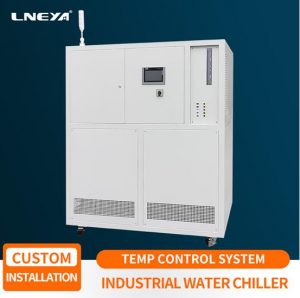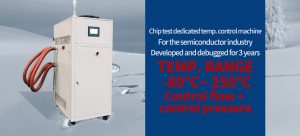Why does a chiller need to be installed for cooling the water storage tank?
The main reasons for configuring a chiller for cooling the water storage tank are related to the following aspects:
Temperature Control: In many industrial and commercial applications, such as air conditioning systems, chemical processes, food processing, pharmaceutical production, etc., the water in the water storage tank needs to be maintained at a specific low temperature state to meet process requirements or provide cooling capacity. The chiller reduces the temperature of water in the storage tank by circulating cooling water or refrigerant, and maintains this temperature within the set range to ensure stable system operation and product quality.
Improving Efficiency: In some applications, such as the comparison between air-cooled water chillers and water-cooled chillers, it is mentioned that chillers can provide higher cooling efficiency by directly cooling circulating water instead of relying on ambient air for heat dissipation. Especially when the ambient temperature is high, the chiller can provide low-temperature water more stably, avoiding the impact of environmental temperature fluctuations on the cooling effect.
Save Water Resources and Energy: The cooling system of the water storage tank equipped with a chiller can reduce water consumption by circulating cooling water. Meanwhile, modern chiller design emphasizes energy efficiency and adopts energy-saving technologies such as variable frequency drive and high-efficiency heat exchangers to reduce energy consumption.
Equipment Protection: In some process flows, such as reactor cooling in pharmaceutical processes and precision equipment cooling in semiconductor manufacturing, the chiller stabilizes the cooling water temperature to prevent equipment damage or performance degradation caused by high temperatures, thereby extending the service life of the equipment.
Environmental Adaptability: In areas with unreliable natural water sources or high temperatures, chillers can provide stable cooling capacity and are not affected by external environmental changes, ensuring uninterrupted cooling services throughout the year.
Flexibility and Scalability: The chiller can adjust its cooling capacity according to actual needs. For systems that require flexible adjustment of cooling capacity or may be expanded in the future, the chiller provides good adaptability and scalability.
In summary, configuring a chiller for cooling water storage tanks not only ensures precise temperature control and improves overall system efficiency, but also plays an important role in protecting critical equipment, saving resources, and adapting to different environmental conditions.
customized indoor and outdoor chillers
Raccomandazioni correlate
-
500 liter reactor cooler selection instructions
1018The 500 liter reactor chiller is used more in the pharmaceutical industry. Therefore, the user needs to select a regular manufacturer when selecting, and at the same time, understand the features and configuration. For the selection of 500 liter r...
Visualizza i dettagli -
-
How to choose an industrial water chiller system
1074Want to buy an industrial water chillersystem? Want to buy a reliable industrial water chiller system? Want to buy ahigh-quality industrial water chiller system? How to buy?1. Process requirementsRegardless of equipment, LNEYA providesusers wit...
Visualizza i dettagli -
Istruzioni per il test dei componenti delle società di ispezione dei trucioli
971Con il continuo sviluppo dell'industria del collaudo dei componenti, sono nate aziende di collaudo dei chip e anche LNEYA ha introdotto apparecchiature per il collaudo dei chip. Il vettore di test della società di controllo dei chip è...
Visualizza i dettagli
 Refrigeratori industriali LNEYA Produttore Fornitore
Refrigeratori industriali LNEYA Produttore Fornitore















